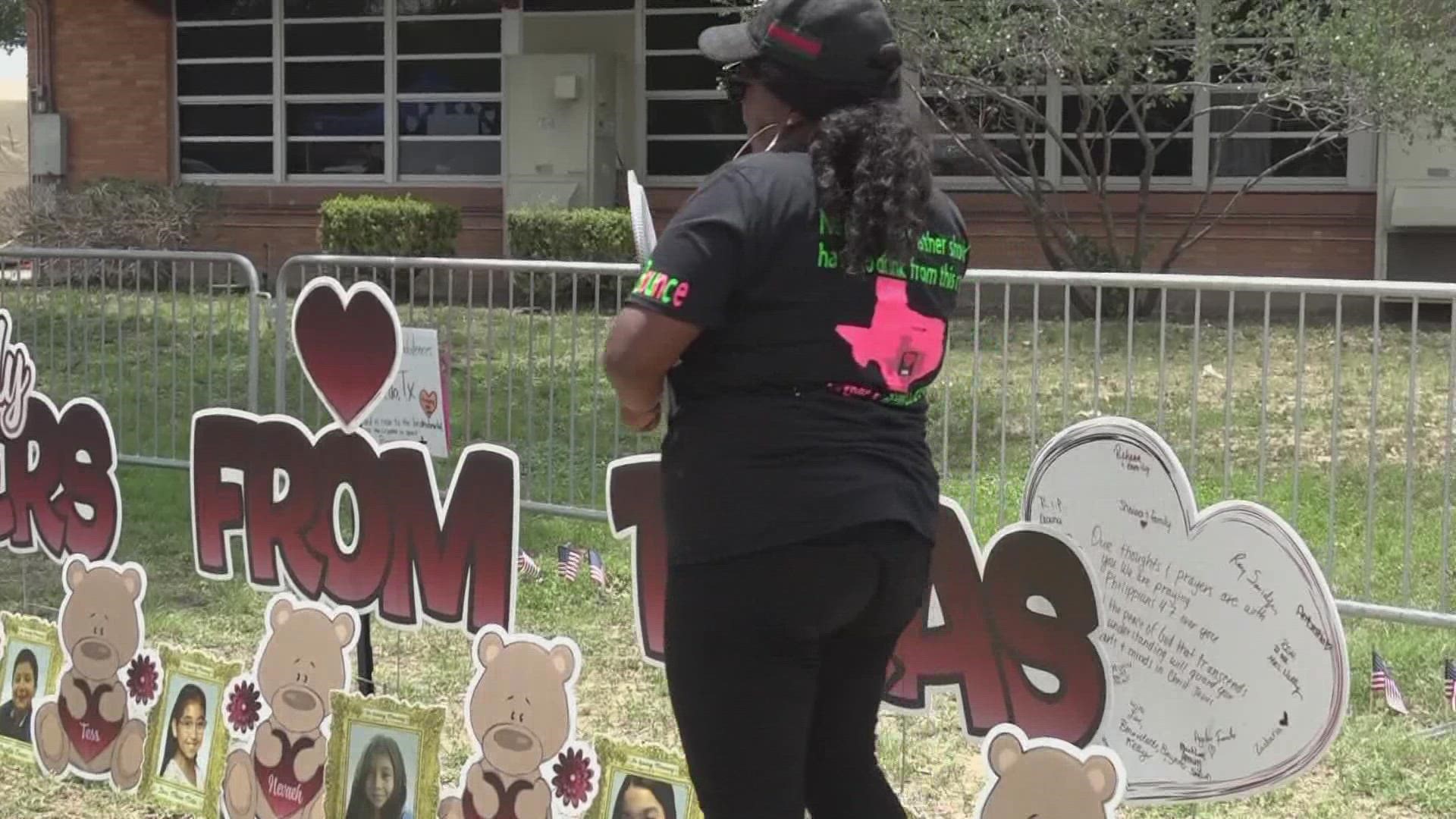SAN ANTONIO — Now that the traffic barricades have been removed and the area around Robb Elementary is more fully accessible to the public, the river of mourners continues to flood the Uvalde area.
At midday Wednesday, as a large group of Bandidos thundered up the street on motorcycles, flying their distinctive red and gold colors, another group, clad all in black, stood solemnly in thought. They were a small group from the Eagle Pass Police Department, who paused to reflect on the overwhelming display of flowers and other tokens of love adorning the entrance to the school.
As a lone horn player stood across the street and shared sorrowful notes, a group of women from Ennis, Texas added another full set of markers to honor the dead.
Barbara Walker said she, her two sisters and her daughter hit the road around 5 a.m. for the five-hour drive.
"Five hours here and five hours back," Walker said, adding that the investment is well worth their time.
Walker said the family knows about losing a loved one to violence all too well, as her grandson was shot to death about a year ago.
"I am a grandmother of 16 and so this was on our heart to do this. It's such a tragedy and it's something that's hard to get over. It's nothing you wish on anyone," Walker said.
The memorial they planted features a marker for each precious person lost. It includes handwritten personal notes and a quote from scripture wishing the families who are suffering a peace that transcends understanding. It includes a special mention of the moms who have lost their children.
"We just hate it," Walker said. "I work for a school district too and that's the most troubling thing, I work with little kids every day."
"It's a wonderful thing that this many people could turn out for such a tragedy. It's overwhelming," Walker added, marveling at the size of the crowd that persisted in the midday heat.
"Spiritually, emotionally, physically, it's just overwhelming," Walker said. "Violence is violence. It's all wrong."
With regard to the long drive home, Walker said she believed the women would spend their time in prayer and "crying all the way to the house."

